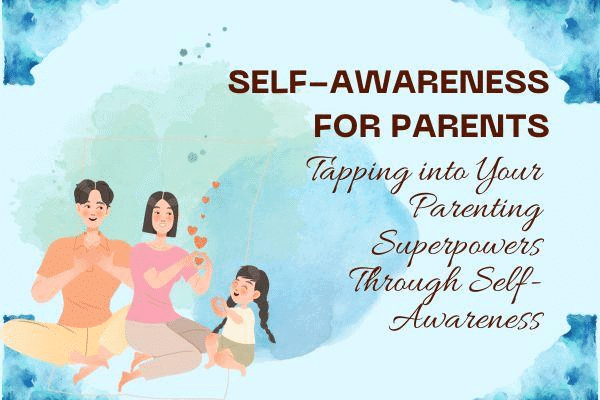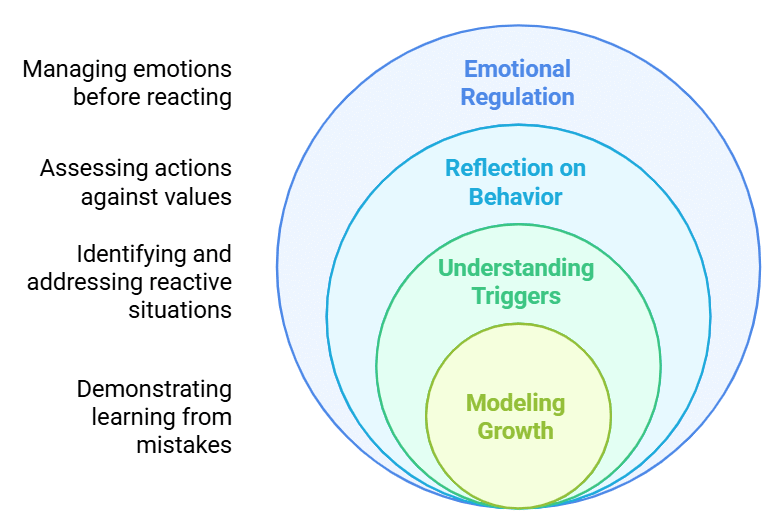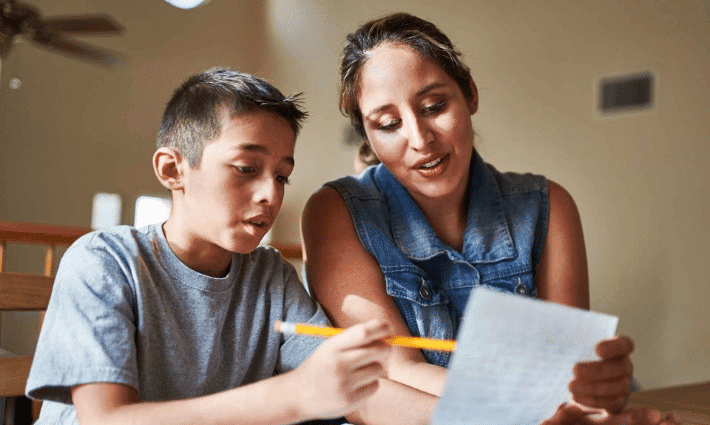Self-Awareness in Parenting | Guide for Mindful Parenting in 2025 - LKG PDF Download
Introduction
The central insight is that self-awareness drives effective parenting. Self-awareness refers to a parent’s ability to recognize and understand their own emotions, behaviors, triggers, and values, and how these influence their interactions with their child. This is critical because children learn not only from what parents say but also from how they act, react, and model behavior in everyday situations. By being self-aware, parents can intentionally shape a nurturing environment that fosters emotional security and growth for their child while also growing themselves.
Why Self-Awareness Matters
- Children Mirror Parents: Kids observe and internalize their parents’ emotional responses, communication styles, and problem-solving approaches. A 2024 study in Developmental Psychology (as mentioned in your input) highlights that parents who reflect on their behaviors raise children who are more emotionally secure. This is because self-aware parents can regulate their emotions, reducing the likelihood of reactive or harmful responses.
- Breaking Cycles: Self-awareness allows parents to identify and change negative patterns, such as yelling under stress, that may stem from their own upbringing or experiences.
- Personal Growth: Parenting is a two-way street. As parents guide their children, they confront their own strengths and weaknesses, offering opportunities for personal development.
Key Components of Self-Awareness in Parenting
- Emotional Regulation: Recognizing your emotional state (e.g., frustration, anxiety) and managing it before responding to your child.
- Reflection on Behavior: Regularly assessing how your actions align with the values you want to instill in your child.
- Understanding Triggers: Identifying situations or behaviors that provoke strong reactions and addressing them thoughtfully.
- Modeling Growth: Showing your child that mistakes are opportunities to learn by admitting and correcting your own errors.

Example 1: Managing a Stressful Moment
Scenario: Your 5-year-old spills juice on the floor during a hectic morning, and you feel frustration rising because you’re already running late.
- Unaware Reaction: You snap, “Why can’t you be more careful?!” Your tone is sharp, and your child looks upset, feeling blamed.
- Self-Aware Approach: You pause, take a deep breath, and recognize your stress is heightened due to time pressure. Instead, you say, “Oops, accidents happen! Let’s clean this up together.” You grab a towel, show your child how to help, and use the moment to teach problem-solving.
Why It Works: The self-aware approach models calmness and collaboration. Your child learns that mistakes are manageable and sees you handling stress constructively, which builds their emotional resilience.
Reflection: After the incident, you might ask yourself, “Why did I feel so frustrated? Was it the spill or the morning rush?” This helps you plan better (e.g., preparing breakfast the night before) to reduce future stress.
Example 2: Apologizing for a Mistake
Scenario: You raise your voice when your teenager forgets to do their chores, saying something hurtful like, “You never listen!” Later, you realize your reaction was disproportionate.
- Self-Aware Action: You reflect and recognize that your frustration came from a long day at work, not just the chores. You approach your teen and say, “I’m sorry for yelling earlier. I was stressed, and I shouldn’t have taken it out on you. Let’s talk about how we can manage chores together.”
- Outcome: Your apology models accountability and emotional honesty. Your teen feels respected and learns that owning mistakes is a strength, not a weakness.
Why It Matters: This builds trust and shows your child that growth is a lifelong process, encouraging them to reflect on their own actions.
Practical Steps to Apply Self-Awareness
- Pause Before Reacting: When you feel a strong emotion, take a moment to breathe and assess why you’re feeling this way. This prevents knee-jerk reactions that might harm your child’s emotional security.
- Example: If your child is throwing a tantrum, instead of yelling, pause and think, “They’re upset because they’re tired. How can I help them calm down?”
- Journal or Reflect Daily: Spend 5 minutes at the end of the day noting one parenting moment—how you reacted, what went well, and what you could improve.
- Example: Write, “I got impatient during homework time. Next time, I’ll set a timer to keep us focused and stay calm.”
- Seek Feedback: Ask your child or partner how they perceive your interactions. For instance, “Did I seem fair when we discussed your screen time?”
- Practice Self-Care: Emotional health is key to self-awareness. Ensure you’re managing stress through exercise, sleep, or hobbies so you can show up as your best self for your child.
- Example: Take a 10-minute walk to clear your mind before tackling a challenging conversation with your child.
- Build Connection: Spend intentional, distraction-free time with your child to strengthen your bond. This makes them feel valued and helps you understand their perspective.
- Example: Play a board game or ask open-ended questions like, “What was the best part of your day?” to foster trust.
Why This Insight Stands Out
The metaphor of parents as “arrows shot from bows” until a child arrives illustrates that parenting redirects a parent’s life trajectory. Before children, life may feel self-directed, but parenthood shifts the focus to nurturing another person while continuing to grow yourself. Self-awareness is the compass that guides this journey. It ensures that your actions align with the values you want to pass on, creating a stable, loving environment where your child can thrive.
Real-World Impact
When parents practice self-awareness:
- Children Feel Secure: They grow up in an environment where emotions are handled constructively, fostering confidence and emotional intelligence.
- Parents Grow: Reflecting on your parenting helps you become more patient, empathetic, and resilient, benefiting all areas of your life.
- Relationships Strengthen: A self-aware parent builds trust and open communication, laying the foundation for a lifelong bond with their child.
Final Takeaway
The most important thing for parents to understand is that self-awareness is the foundation of effective parenting. By reflecting on your emotions, reactions, and values, you not only guide your child’s growth but also evolve as a person. Today, try one small step: pause before responding to your child’s next challenge and ask, “What am I feeling, and how can I model the behavior I want them to learn?” This small act can set a powerful example, shaping both your child’s path and your own.
|
10 docs|2 tests
|
FAQs on Self-Awareness in Parenting - Guide for Mindful Parenting in 2025 - LKG
| 1. What is the single most important thing every parent should understand about their child's early education? |  |
| 2. How can parents apply this insight in their daily interactions with their children? |  |
| 3. Why does understanding early education matter for parents? |  |
| 4. What are some effective strategies for parents to support their child's learning in LKG? |  |
| 5. How can parents identify whether their child is meeting developmental milestones in LKG? |  |
















